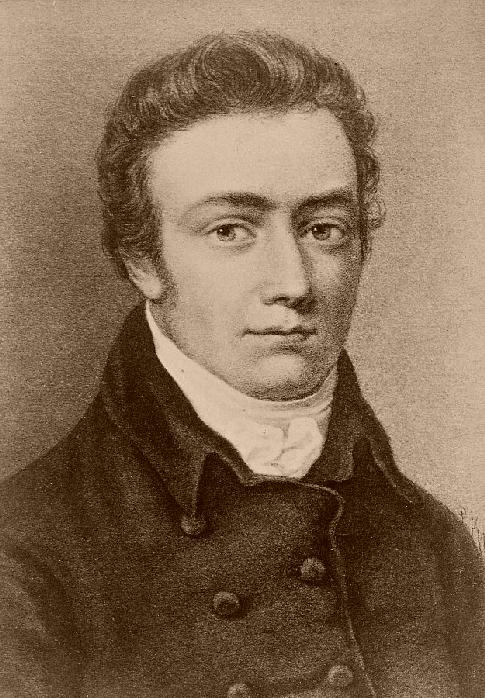Samuel Taylor Coleridge frasi celebri
Origine: Da La ballata del vecchio marinaio.
Samuel Taylor Coleridge Frasi e Citazioni
Origine: Da Sulla poesia o l'arte.
La leggenda del vecchio marinaro, Alessandro Ceni
La leggenda del vecchio marinaro, Alessandro Ceni
La leggenda del vecchio marinaro, Alessandro Ceni
“Chi si vanta di aver conquistato | una moltitudine di amici non ne ha mai avuto uno.”
Origine: Da Pondere non numero.
Origine: Citato in Guido Almansi, Il filosofo portatile, TEA, Milano, 1991.
Origine: Da una lettera del 1798 a George H. Coleridge; citato in Andrew Weil e Winifred Rosen, Dal cioccolato alla morfina. Tutto quello che dovete sapere sulle sostanze che alterano la mente, traduzione di Fabio Bernabei, Arcana, Roma, 2007, p. 107.
“La più generale definizione della bellezza […] Molteplicità nell'Unità.”
Origine: Da On the Principles of Genial Criticism.
“L'esperienza ci informa che la prima difesa degli spiriti deboli è recriminare.”
Origine: da Biographia literaria, 1817.
“Quella volontaria sospensione dell'incredulità sul momento, che costituisce la fede poetica.”
Origine: Da Biographia literaria, 1817 – cap. XIV.
Origine: Da Poesie e prose, Torino, 1931, p. 124; citato in Aldo D'Asdia e Pietro Mazzamuto, Letteratura italiana, Pagine di documentazione critica, Felice Le Monnier, Firenze, 1973<sup>9</sup>, p. 9.
Samuel Taylor Coleridge: Frasi in inglese
31 May 1830.
Table Talk (1821–1834)
Contesto: The Pilgrim's Progress is composed in the lowest style of English, without slang or false grammar. If you were to polish it, you would at once destroy the reality of the vision. For works of imagination should be written in very plain language; the more purely imaginative they are the more necessary it is to be plain.
Origine: The Rime of the Ancient Mariner
“Prose: words in their best order; poetry: the best words in the best order.”
12 July 1827.
Table Talk (1821–1834)
Variante: Poetry: the best words in the best order.
Contesto: I wish our clever young poets would remember my homely definitions of prose and poetry; that is, prose = words in their best order; poetry = the best words in their best order.
Origine: The Rime of the Ancient Mariner
Origine: The Rime of the Ancient Mariner
Aids to Reflection, "Moral and Religious Aphorisms," Aphorism 25 http://books.google.com/books?id=hEbwXNWXoBoC&q=%22He+who+begins+by+loving+Christianity+better+than+truth+will+proceed+by+loving+his+own+sect+or+church+better+than+Christianity+and+end+in+loving+himself+better+than+all%22&pg=PA74#v=onepage (1873)
“And the spring comes slowly up this way.”
Part I
Bartlett's Familiar Quotations, 10th ed. (1919), Christabel
“Clothing the palpable and familiar
With golden exhalations of the dawn.”
The Death of Wallenstein, Act i, scene 1
Bartlett's Familiar Quotations, 10th ed. (1919)
Epitaph on an Infant
Bartlett's Familiar Quotations, 10th ed. (1919)
“Brute animals have the vowel sounds; man only can utter consonants.”
20 August 1833
Table Talk (1821–1834)
“Until you understand a writer's ignorance, presume yourself ignorant of his understanding.”
Origine: Biographia Literaria (1817), Ch. XII
“The Eighth Commandment was not made for bards.”
"The Reproof and Reply" (1823); the eighth commandment is "Thou shalt not steal".
“The grand old ballad of Sir Patrick Spence.”
St. 1
Dejection: An Ode (1802)
10 July 1834
Table Talk (1821–1834)
“I counted two and seventy stenches,
All well defined, and several stinks.”
" Cologne http://etext.lib.virginia.edu/stc/Coleridge/poems/Cologne.html" (1828)
"Lectures on Shakespeare and Milton" (1811–1812)
15 August 1833
Table Talk (1821–1834)
20 August 1833
Table Talk (1821–1834)
